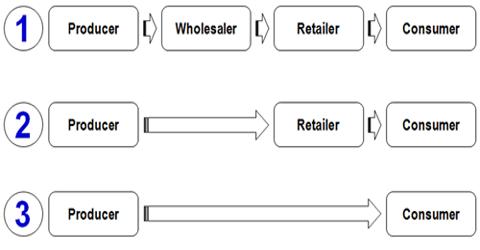Functions of Distribution Channels
Distribution is one of the four elements of the marketing mix, the other three being the product, pricing and promotion. Channels of distribution smoothen the flow of commodities by creating possession, place and time utilities. They assist various time, place and possession barriers that exist between the manufacturers and customers. The significant functions performed by middlemen are as follows:
- Sorting: Middlemen acquire supplies of goods from a diversity of sources, which is often not of the similar class, character, and size. For example, a wholesaler of nut chocolates may procure a large quantity from different chocolates producing areas, which would contain nuts of diverse quality and sizes.
- Accumulation: This role involves buildup of goods into better homogeneous stocks, which help in maintaining incessant flow of supply.
- Allocation: Allocation involves breaking homogenous store into minor, marketable lots. For example, once chocolates nuts are graded and large quantities are built, these are divided into convenient packs of say 500 gms and 250 gms, 100 gms to sell them to different types of buyers.
- Assorting: Middlemen make variety of products for resale. There is typically a variation between the product lines made by manufacturers and the collection or combinations desired by the users. For example, a Soccer player may need a football, shoes, jersey, T-shirt etc. Perhaps no one producer produces these products in preferred combination.
- Product Promotion: Mostly promotion and other sales endorsement activities are organized by manufacturers. Middlemen also contribute in assured activities such as demonstrations, special displays etc.
- Negotiation: Channels operate with manufacturers on the one hand and consumers one, the other. Arriving at deals that please both the parties is another vital function of the middlemen. They bargain the price, guarantee and other related matters with consumers so that transfer of ownership is correctly affected.















